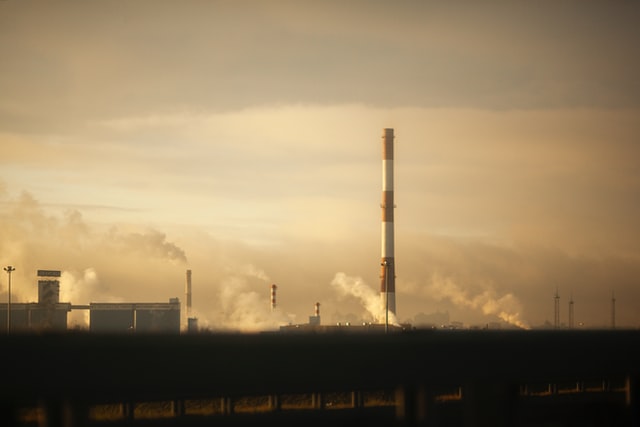The UK government has come under fire from Greenpeace for granting a drilling permit to BP oil in the North Sea. The courts will soon witness a heated exchange between the UK government and Greenpeace. The lawsuit launched is related to how some government officials have no regard for the effects of climate change enacted by industrial activities. As a developed nation, the UK government is blamed for prioritizing money over the planet’s environment and contributing to a larger problem that will affect all the earth’s inhabitants. Thus, Greenpeace sought to put a cap on activities that fuel climatic changes.
Granting such a permit seems like a regression from one of the leading countries that have been championing for all countries to join campaigns of global emissions reduction. The UK is leading in utilizing novel ways of clean energy and reducing emissions into the atmosphere. Modern technologies are embedded in its economic blueprints, including nuclear fission, electric cars, and renewable sources. The country vowed to abandon coal-burning to stop harmful gases from being aired out into the atmosphere. Industrialized states were fingered as the top polluters and urged to make significant strides in rectifying their economic operations, especially when harnessing power.

But allowing an established oil company like BP to acquire fossils puts a dent in the UK’s record of fighting against pollution. According to Greenpeace legal team, it will present to the judicial system how their government ignored all aspects of climate change when it gave out a permit for BP to begin drilling around 30 million barrels of oil [Source]. In 2018, BP was given the go-ahead to start the project pegged at $275 million in the Vorlich field. This lawsuit is unique as this is the first time for any offshore permit to be challenged in British courts. But it is more related to other deals such as the Cambo oil field approval by the government, which was despised throughout by environmentalist departments. The Cambo oil extraction project is deemed dangerous to the environment and left many organizations questioning Prime Minister Boris Johnsons’ commitment towards climate change leadership [Source].
Stated in the British plan are the aspirations of reducing emissions by 2030, and most countries pledged to support their own movement towards achieving similar goals at a “fast pace possible.” According to the International Energy Agency and the UK, any oil or gas extractions will hinder developed countries from reaching their emissions targets and will escalate the rate at which climate changes are being witnessed. Mel Evans, Head of oil and gas transition at Greenpeace, said, “It’s outrageous that the UK government routinely rubber stamp oil permits – like this one and the proposed permit for Cambo – while completely ignoring the climate impact, which causes extreme weather conditions and deaths.”
Mr. Evans highlighted the lawsuit and added that “We hope the judge will agree legally this cannot be allowed to happen. It makes no sense for the government to overlook the most harmful consequences of oil and gas when making these decisions” [Source].

On the government’s side, oil and gas can be equated to “basic needs” in a developed country like theirs, so both elements are vital requirements if the economy is to continue kicking. Statistics revealed that vast amounts of gas and oil are being imported from outside, and expenses are incurred compared to extracting oil from national grounds. Oil and Gas UK posited how the UK was forced to import 56% of gas needed for heat and power, and this percentage was to cover only the period between January and March 2021. Winter conditions usually demand more gas, but this 8% importation increase in 2021 was necessitated by covid-19 restrictions applied to stop coronavirus spread.
Deirdre Michie, Oil and Gas UK Chief Executive, commented on gas usage in both factories and residential areas. He said, “Oil and gas provided nearly three-quarters of the UK’s total energy last year, and we will continue to rely on them to heat our homes, keep our lights on and create many of our everyday essentials from medicines to mobile phones to road surfaces. About 85% of UK homes are still heated by gas, but imported gas hit a record last year.”
Because of vast sectors powered by gas, Mr. Michie argued that there is a need to “invest in new oil and gas developments to ensure the security of supply and underpin a strong domestic industry to build the low-carbon energy ecosystem of the future.”
Michie acknowledges how they must shun from depending on operations that damage the atmosphere but brought out a pertinent issue related to cutting off the demand for gas and oil before reducing domestic production of these elements. He explained, “We all know that change is needed, so the question is how fast we make that change. This report shows the reality that cutting off the domestic production of oil and gas faster than we can reduce demand risks leaving us increasingly dependent on other countries that often generate higher emissions.”

However, the other side refuted any justification in developing projects which go against the Paris climate agreement commitments. Tess Khan, Environmentalist lawyer and founder of campaign group Uplift, outlined that “OGUK rightly identifies the problem we have in the UK, which is our reliance on oil and gas, particularly when other countries are moving ahead with cleaner ways of heating homes and powering cars, but it offers no credible plan for reducing emissions.”
“But why look for answers from an industry that wants to profit from extracting oil for as long as possible? That is why the UK government must step in and halt new oil and gas developments while going all-in on shifting consumption to cleaner alternatives,” as noted by Khan.
Jess Ralston, Research group Energy and Climate Intelligence Unit analyst, suggested that “Experts can’t be clearer that continued UK fossil fuel exploration doesn’t add up. The economic case is failing as renewables continue to get cheaper, a trend multiplied by gas prices tripling in the last year as we continue to rely on the geopolitical whims of leaders such as Russia’s Putin.”
The lawsuit comes when the UK government is preparing to host the COP26 summit in Glasgow, and this issue might take center stage. Every nation has to present progress towards attaining emissions targets, and the Britons need a comprehensive defense for making these moves. COP26 will address climate change issues, and the biggest polluters take a stand to show rectification measures towards reducing global emissions.
Since the UK economy and power stations have been relying on fossil fuels, it might take time to adjust from those sources, and that is why companies are being permitted to engage in more gas and oil production. But Greenpeace believes that ‘nothing justifies damaging mother earth’ and is determined to face government in court.





































